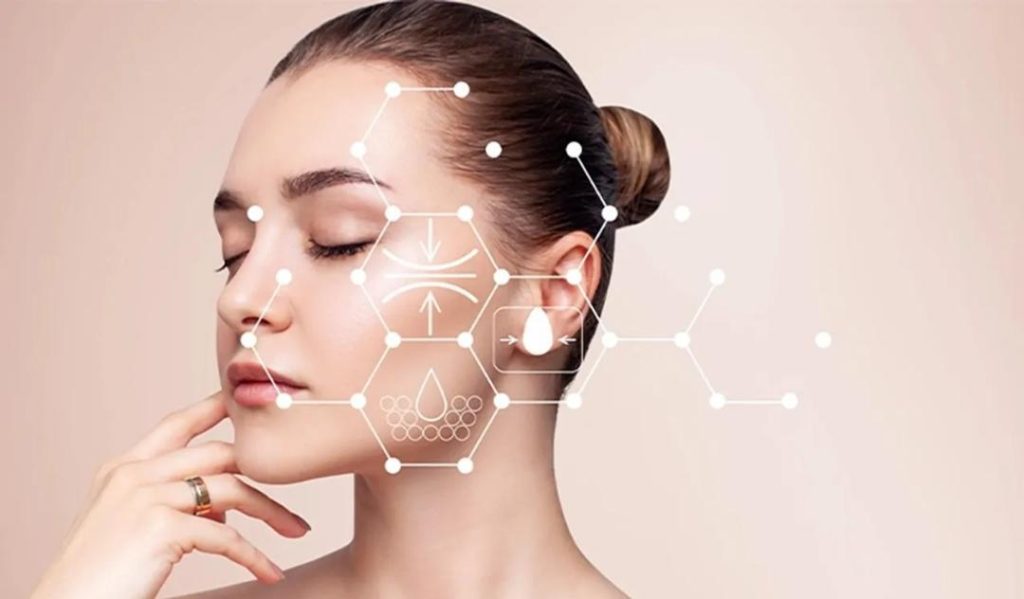
How AI & Innovation are Redefining the Beauty and Wellness Landscape
The skincare industry has undergone a significant transformation in recent years, moving beyond basic routines to a world of personalized solutions, inclusivity, and cutting-edge innovation. As we look ahead to 2025, skincare trends reflect a deeper understanding of diverse skin needs, a commitment to wellness, and a harmonious blend of science and nature. In this post, we’ll explore how AI and innovation are redefining the beauty and wellness landscape, and what it means for consumers.
Personalization and AI-Driven Skincare
One of the most significant shifts in the skincare industry is the increasing use of artificial intelligence (AI) to create personalized skincare routines. AI-powered skincare platforms use data analytics and machine learning algorithms to analyze individual skin types, concerns, and goals, providing tailored product recommendations and customized routines.
For instance, AI-powered skincare apps like Skinsei and BeautyDNA use AI to analyze skin data, including skin type, tone, and texture, to recommend personalized skincare products and routines. These platforms also provide continuous monitoring and tracking, allowing users to adjust their routines based on their skin’s response.
This level of personalization is a game-changer for consumers, as it eliminates the need for trial and error and ensures that products are tailored to their specific skin needs. As AI technology continues to evolve, we can expect to see more innovative applications in the skincare industry, such as AI-powered skincare coaches that offer personalized advice and guidance.
Inclusivity and Diversity
Another significant trend in the skincare industry is the increasing focus on inclusivity and diversity. Skincare brands are recognizing the importance of catering to diverse skin types, tones, and textures, and are working to create products that are more inclusive and accessible.
This shift towards inclusivity is driven by the growing demand for products that cater to diverse skin needs. According to a report by Euromonitor International, the global skincare market is expected to reach $131.8 billion by 2025, with growth driven by increasing demand for products that cater to diverse skin types and concerns.
To address this demand, skincare brands are launching products that cater to diverse skin needs, such as products for darker skin tones, products for sensitive skin, and products for skin of color. For instance, brands like Fenty Beauty and Rihanna’s Fenty Skin have launched products that cater to diverse skin tones and types, providing more inclusive options for consumers.
Wellness and Self-Care
The skincare industry is also shifting towards a greater focus on wellness and self-care. Consumers are recognizing the importance of taking care of their overall well-being, including their skin, and are seeking products and routines that promote holistic health and wellness.
This shift towards wellness and self-care is driven by the growing awareness of the importance of mental health and the impact of stress on the skin. According to a report by the American Psychological Association, chronic stress can lead to skin issues such as acne, rosacea, and eczema, and can also exacerbate existing skin conditions.
To address this demand, skincare brands are launching products and routines that promote relaxation and stress relief, such as products infused with calming ingredients like lavender and chamomile. For instance, brands like Aesop and Dr. Hauschka have launched products that promote relaxation and stress relief, such as bath salts and body oils.
Sustainability and Eco-Friendliness
Finally, the skincare industry is also shifting towards greater sustainability and eco-friendliness. Consumers are recognizing the importance of reducing their environmental footprint and are seeking products and brands that prioritize sustainability.
This shift towards sustainability is driven by the growing awareness of the impact of skincare products on the environment. According to a report by the United Nations, the beauty industry is one of the most polluting industries in the world, with the production and disposal of packaging and products contributing to plastic waste and climate change.
To address this demand, skincare brands are launching products and packaging that prioritize sustainability, such as refillable packaging, biodegradable packaging, and products made from natural and organic ingredients. For instance, brands like Lush and The Body Shop have launched products and packaging that prioritize sustainability, such as refillable soap dispensers and biodegradable packaging.
Conclusion
The skincare industry has undergone a significant transformation in recent years, shifting from basic routines to a world of personalized solutions, inclusivity, and cutting-edge innovation. As we look ahead to 2025, skincare trends reflect a deeper understanding of diverse skin needs, a commitment to wellness, and a harmony between science and nature.
AI and innovation are playing a significant role in redefining the beauty and wellness landscape, providing personalized skincare routines, promoting inclusivity and diversity, and prioritizing wellness and sustainability. As consumers, we can expect to see more innovative products and brands that cater to our unique skin needs and priorities.
News Source:
https://www.shethepeople.tv/author-spotlight/guest-contributions/skincare-trends-for-2025-8728129






